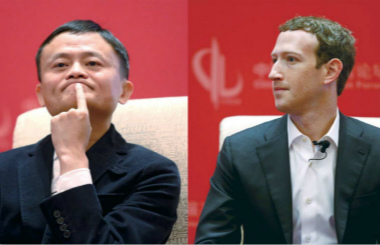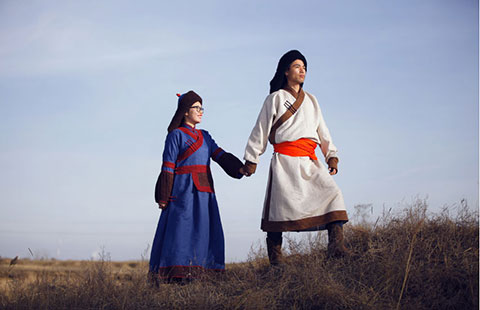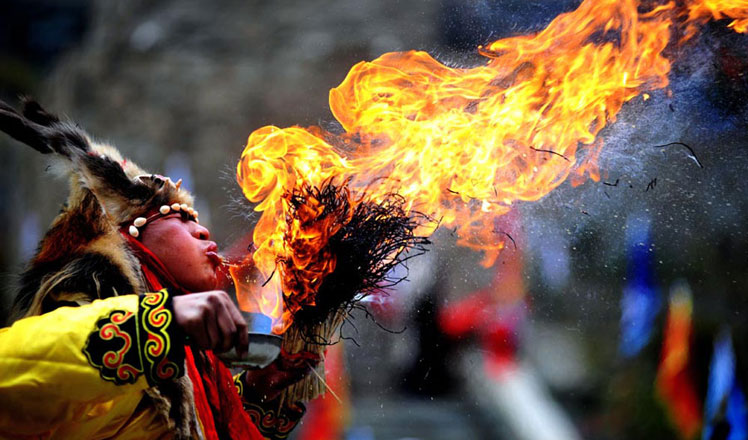Xi's summit trip seen as success
Updated: 2016-04-04 18:02
By CHEN WEIHUA in Washington(chinadaily.com.cn)
|
|||||||||
President Xi Jinping's participation in the fourth Nuclear Security Summit in Washington has won positive reviews.
Dong Zhihua, deputy director of the arms control and disarmament department of the Ministry of Foreign Affairs, said top Chinese leaders have paid great attention to nuclear security and demonstrated their firm support for the global fight against nuclear terrorism.
Chinese presidents have attended all four summits, including two recent ones by Xi, who attended all the formal agenda sessions of the March 31- April 1 summit.
Dong applauded China's proposals made by Xi at the summit, which she said "led the discussion to a positive outcome".
The summit, which was attended by leaders from more than 50 countries, issued a communique on April 1 pledging continued commitment to nuclear security as an enduring priority.
It also announced action plans to support a list of international organizations such as the United Nations and International Atomic Energy Agency (IAEA).
Xi delivered speeches at several events, such as the welcome dinner on March 31, the plenary session and the scenario-based discussions on April 1.
In a briefing after the summit, Dong characterized the four proposals by Xi as strengthening political input, national responsibility, international cooperation and nuclear security culture.
She said Xi's remarks have drawn a positive response from other leaders and also are reflected in the outcome documents of the summit.
"The proposals are a major contribution China has made to the summit. It will point the direction for strengthening global nuclear security architecture after the last summit," she said.
Xi also put forward five initiatives in his speech. They include conducting training and technical exchange at the newly inaugurated Nuclear Security Center of Excellence (COE) in Beijing and at the China Customs Radiation Detection Training Center in Qinhuangdao, Hebei province. Both are joint programs between China and the US.
US President Barack Obama, Secretary of State John Kerry and Secretary of Energy Ernest Moniz all mentioned the new state-of-the-art COE in China in their speeches during the summit as a demonstration of China-US cooperation.
Meanwhile, China is also helping Ghana to convert a highly enriched uranium (HEU)-fueled research reactor to using low enriched uranium (LEU) within the framework of the IAEA.
China pledged at the summit to strengthen the monitoring of radioactive sources in China, cooperate with other nations and organizations in civil-use nuclear material research, and help other nations elevate their management.
Dong believes the Chinese initiatives will provide public good in nuclear security to the Asia-Pacific region and the international community. China has an ambitious plan for developing renewable energy, including nuclear energy. It also has been exporting nuclear reactors to other nations.
The initiative is also expected to help the destination nations of China's nuclear energy export, countries along the One Belt and One Road project and many developing nations. The One Belt and One Road is a Chinese initiative that focuses on the connectivity and cooperation among nations, mostly in Eurasia.
Dong said China has kept its commitments made during previous summits, adding that it "demonstrates the sense of responsibility of China as a major country".
On the morning of April 1, Xi participated in the meeting Obama hosted for the P5+1 partners, which reached the nuclear agreement with Iran last summer.
Xi noted the four inspirations China has drawn from the deal. China believes that dialogue and negotiations; concerted efforts by major countries; fairness and impartiality; and political resolve are vital in tackling regional and global hotspot issues.
While Xi stayed in the US only for some 48 hours, he also took the opportunity to hold several bilaterals on the sidelines of the summit. His meeting with Obama on March 31 was the only bilateral Obama had with any of the 50-plus heads of state and government at the summit.
It happened at a time of growing concern over the tension between China and the US regarding the South China Sea.
Xi also met with Republic of Korea President Park Geun-hye, Danish Prime Minister Lars Rasmussen and Argentine President Mauricio Macri.
Chen Kai, secretary-general of China Arms Control and Disarmament Association, said on April 1 that the Nuclear Security Summit provided a good platform for nations to share experiences, expand cooperation and elevate their capabilities in nuclear security.
Xu Dazhe, chairman of the China Atomic Energy Authority, explained in length on April 1 to journalists about the new COE in Beijing. He called it an important achievement in deepening China-US cooperation in nuclear security.
On March 31, Xu walked US Energy Secretary Moniz through the China Pavilion of the Nuclear Summit Expo, where the COE was in spotlight. Moniz was in Beijing on March 18 for the official opening of the COE.
Deng Ge, director of the China National Security Technology Center, the Chinese partner for the COE, said the COE already has started cooperation with IAEA, the EU, Russia and the Republic of Korea.
He expressed that the COE will help train more people from China and Asia-Pacific nations. It will also strengthen its cooperation with COEs in ROK and Japan.
The center, which has trained 100 to 200 technical professionals, will reach its full capacity of training 2,400 in the coming two years, according to Deng.
"It will have an even stronger capacity in five years," he said.
Related Stories
China shows a major country's responsibility of global nuclear security governance 2016-04-03 19:43
President Xi's proposals show resolve in nuclear security: experts 2016-04-03 19:22
Chinese president back home after Czech visit, nuclear security summit 2016-04-03 00:58
Xi's visit highlights China's commitment to expanding cooperation, safeguarding nuclear security 2016-04-03 00:58
Today's Top News
Once-endangered pony makes comeback
Bookshop worms way into community
A fresh start
Bookshops reinvent themselves
Xi-Obama bilateral talk to advance ties
Foreign companies reassured on new Internet rules
Beijing and Prague form new key link
Trump drops pledge to back Republican nominee
Hot Topics
Lunar probe , China growth forecasts, Emission rules get tougher, China seen through 'colored lens', International board,
Editor's Picks

|

|

|

|

|

|






